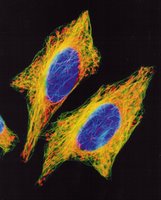Big News on the Tissue Research Front: A Congressional Investigation Into Researchers Profiting Off Tissues Without Consent
 Finally, Congress weighs in on the lax regulation of human tissue research, tissue ownership, and the practice of scientists profiting off tissues donated exclusively for research -- something I reported on at length in my recent New York Times Magazine story, Taking The Least of You (which I've been posting regular updates on here and here and here).
Finally, Congress weighs in on the lax regulation of human tissue research, tissue ownership, and the practice of scientists profiting off tissues donated exclusively for research -- something I reported on at length in my recent New York Times Magazine story, Taking The Least of You (which I've been posting regular updates on here and here and here).A Congressional report was released yesterday detailing an investigation they launched into NIH's practices after they found out that a scientist at NIH had been providing tissue samples (obtained with federal tax-dollars) to a pharmaceutical company and pocketing large profits in return:
"A senior government scientist pocketed hundreds of thousands of dollars as a drug company consultant in exchange for human tissue samples that cost the federal government millions to acquire, congressional investigators said yesterday ... the National Institutes of Health's Dr. Trey Sunderland ... chief of the geriatric psychiatry branch of the National Institute for Mental Health, sent Pfizer 3,200 tubes of spinal fluid and 388 tubes of plasma collected for Alzheimer's research.
The government spent $6.4 million to obtain the 3,500 samples that showed how Alzheimer's disease progressed in 538 subjects. Pfizer paid Sunderland $285,000 in consulting fees related to the samples, investigators said. In total, Pfizer paid him more than $600,000 from 1998 to 2004 for outside consulting and speaking fees."
This is nothing new -- there's a long history of scientists doing this sort of thing. As a Pfizer representative said, ``The payments over a six-year period were reasonable and customary for an expert of Dr. Sunderland's stature, and reflect the fair-market value of his consulting services." Perhaps, but it doesn't make it right.
The problem is that common practices outpaced regulation a long long time ago. Because they were established long before tissues became the huge commodity they are today, the regulations currently governing tissue research are minimal and don't address big ethical issues. As a result, the enormous tissue repositories scientists have built up over the decades aren't set up for regulation: There's no uniformity in the way tissues are collected, stored, consented, or monitored. It's a mess that isn't going to be easy to clean up.
``NIH tells us it has no centralized inventory system that could tell the NIH director how many vials of tissues are in freezers at a particular institute," said Representative Joe Barton, Republican of Texas and House Energy and Commerce Committee chairman . ``It would really be a shame if we find out that the National Institutes of Health has more control over its paper clips and trash cans than it has over its human tissue samples."
The committee's senior Democrat, Rep. John D. Dingell, said: "NIH lacks adequate controls for human tissue samples, human subject protection and the scientific conduct of many of its senior employees. Accountability must be restored to NIH's own research programs."
This is absolutely true, but it doesn't only apply to the NIH. This is essentially universal. There is no established system for monitoring the widespread use of tissues throughout science, and there must be. It has to be set up in a way that doesn't inhibit science, but does protect the public against having their tissues and tax dollars used in ways they haven't consented to (including -- but not limited to -- personal profits for reseserchers). This is something scientists and ethicists and policy makers have been arguing about for decades.
The NIH has issued a statement saying, "We agree we need to improve the tracking of tissue samples ... We are in the process of determining the best way of doing that now." I'll be interested to see what they come up with. A while ago, their cancer institute created the Office of Biorepositories and Biospecimens to establish uniformity in the way samples are collect, consented, stored, regulated and distributed. If it's applied to the whole of NIH instead of just the cancer institute, and if it gains any enforcement power, that could help sort this problem out. But at this point, all of their guidelines are voluntary -- researchers don't have to comply with any of them -- and they're not given to all NIH investigators.
Not surprisingly, the researchers at the center of this case aren't talking, and high up officials at NIH have recommended that Sunderland (the main researcher) be fired. Clearly, what he's done is ethically wrong, and a system needs to be put in place so this common practice stops. But this isn't just about Sunderland -- this is about the overall lack of regulation and guidelines in tissues research.
In working on my article and book about this issue, I've talked to countless researchers about the ethics of tissue research. On the whole, I'm absolutely convinced that most researchers want to use tissues ethically, and that they work very hard to follow the existing guidelines. But the guidelines are incomplete, often confusing and sometimes contradictory, so researchers are left to figure this out for themselves. Hopefully this investigation will help solve this problem, though if history tells us anything, it might not.
Labels: Bioethics: Use of Human Tissues, My Book, My Publication News, Science and Money

0 Comments:
Post a Comment
<< Home